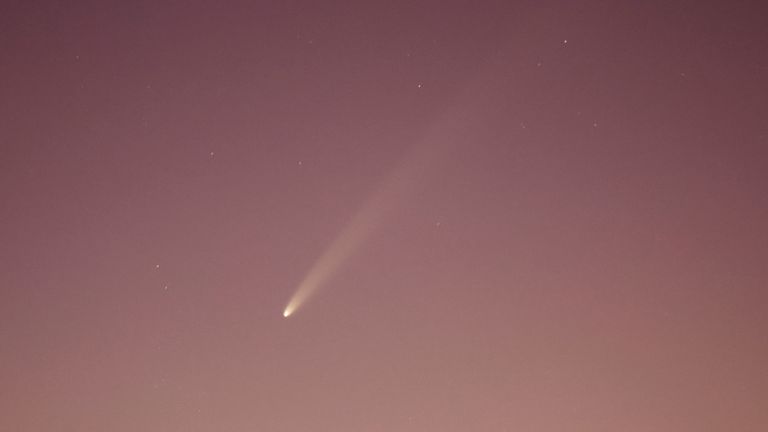A comet that was last seen when Neanderthals roamed the Earth is about to make an appearance again, as it swings through orbit towards us.
The A3 comet is described as “the most impressive comet of the year” by the Royal Greenwich Observatory and should be visible to the naked eye if the conditions are right.
The comet, also known as C/2023 A3 (Tsuchinshan-Atlas), was discovered in January 2023 and visits the inner solar system roughly every 80,000 years.
It comes from the Oort Cloud, a huge shell that surrounds our solar system.
NASA describes the Oort Cloud as a “big, thick-walled bubble made of icy pieces of space debris the size of mountains and sometimes larger”.
It’s thought that most long-period comets, like the A3 comet, come from the Oort Cloud.
It orbits the sun in an elongated path, and gets very close to our star.
That means there is a risk it falls apart as it orbits past the sun, meaning we would not see anything when it comes back around past Earth.
People in the southern hemisphere and some near the equator have already spotted the A3 comet, which shows it was in a good condition when it zipped past Earth on its way to the sun.
When it comes back around, the northern hemisphere will get a better chance to spot the comet.
The best time to spot the A3 comet here in the northern hemisphere will be between the 12 and 30 October if you look to the west just after sunset, according to the Royal Greenwich Observatory.
Although good weather conditions should make the comet visible to the naked eye, a pair of binoculars or a telescope will help get a better view.

